(Food) Markets are a happy place: West Africa
Discover the markets in Ghana, Togo and Benin: from the gigantic Kejetia Market in Kumasi to the Fetish Market in Abomey.
As I wrote in my previous post about markets (the one about Japan and South Korea), I have an extensive list of those I’ve visited. So here is part two, about West Africa, featuring three countries you can easily combine and travel through independently by public transport.
The Kejetia Market in Kumasi (Ghana)
I explore the Kejetia Market with a guide. The market of Kumasi is not only gigantic but also chaotic. It's very useful to have someone with me who knows her way and where to find special items and interesting people.
We begin the visit at the food stalls, where I see loads of vegetables, fruit, herbs, chilli peppers, and grains. Occasionally, we stop to taste something, like chalk, which apparently is good for something. The market vendor keeps smiling at me as I try to clear away the dry grains in my mouth, no doubt enjoying the spectacle of yet another baffled foreigner trying to pretend chalk is a delicacy.
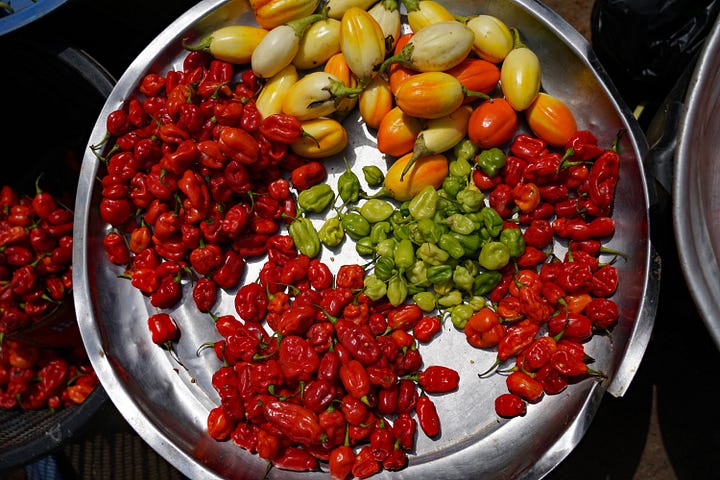
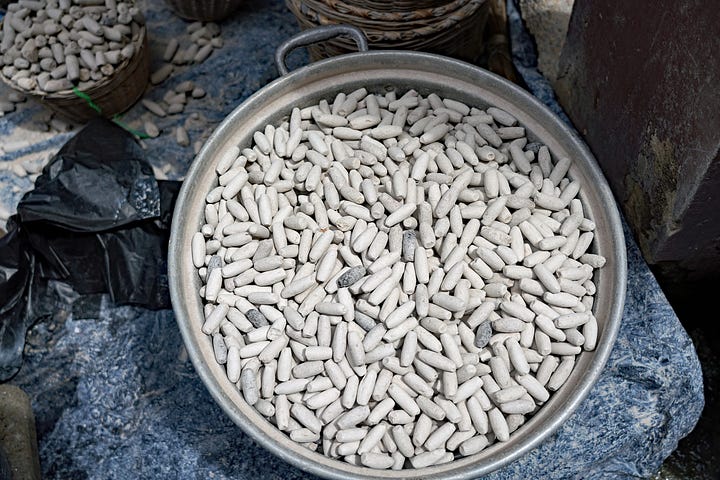
We climb onto the concrete skeleton of a building so my guide can show me the extent of the market. It's even much bigger than I thought. As far as the eye can see, there are stalls, canopies, parasols, people, clouds of smoke, vans and bustling activity. A bit further on, we see the European clothing market, where a lot of secondhand clothing from Europe ends up1.
The recycling corner
My guide, full of pride, leads me through the recycling corner. There are alleys full of plastic packaging being reused in all sorts of inventive ways. There are mostly empty bottles and jerry cans being sold, but also upcycled products made from the waste, such as buckets, containers and jugs. Looking at these recycled items, it strikes me how the market renders Western concepts of ‘waste’ meaningless. Here, everything has potential; everything is waiting for a second life.


Deeper hidden in the maze of stalls, we find the fetish market. Here lie figurines, necklaces, shells, piles of dead canaries, rabbit heads, dried reptiles and much more voodoo-related stuff. The smell of dead animals is quite penetrating. I feel relieved when we walk past a stall with strongly scented roots, herbs & spices.
Together we explore more corners of the market. The fabric and clothing market is beautiful; here the outfits in which many Ghanaians walk around are completely made to order. Also for funerals (that's a whole business in Ghana). I hear sewing machines rattling and am surrounded by piles of colourful fabrics.
Dancing between the pans
Via alleys full of beads, we end up at the cooking section of the Kejetia Market. The paths are a bit wider here, and the stalls are filled with traditional stoves, pans and all kinds of kitchen tools, such as cast spoons made from recycled aluminium. The vendors are eager to say hello, have a chat, or take a photo with me. One lady is so contagiously enthusiastic that before I know it, I am dancing with her between the pans. I say goodbye to her with a big hug.
The Fetish market in Abomey (Benin)
A visit to the fetish market in Abomey is not to be missed. It is a part of Vodún, the national religion in Benin2.
Mountains of dead birds
This market is considerably more intense than the hidden corner I encountered in Kumasi. Mountains of dead birds, rodents and reptiles sprawl across makeshift tables or are simply spread out on the floor, while rows of monkey, bear, deer and dog heads stare at me3. There are also vendors selling sculls, bones, sculptures and bottles filled with charcoal. I navigate past stalls hung with pelts, tails and animal skins. There’s even a fresh produce section, where chickens and little goats shift nervously in their pens, and a cage tucked away holds kittens - whose fate I deliberately avoid contemplating.
Somewhere in a corner, I discover a stall that sells only herbs and tea. A small oasis in this sensory storm. I linger here a little longer, finding a moment of calm amidst the overwhelming experience. The scent of dried flowers and earthy herbs offers a pleasant counterpoint to the market’s more pungent offerings. Despite my Western discomfort, I remain respectful of the serious religious significance these items hold for practitioners, who see not death but a spiritual connection in these animal remains.
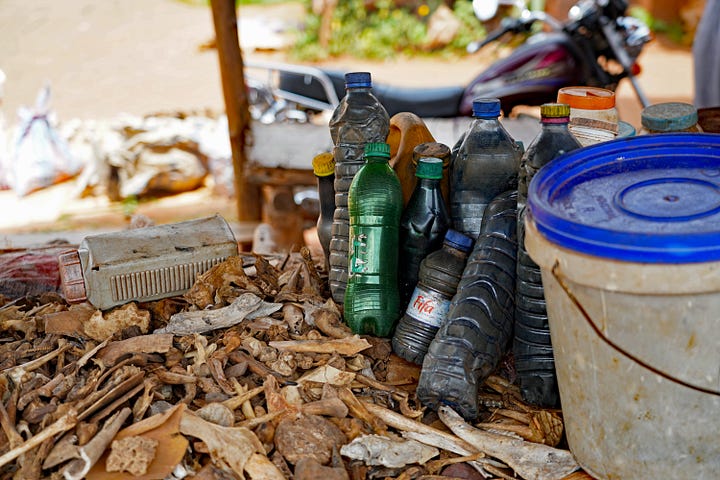
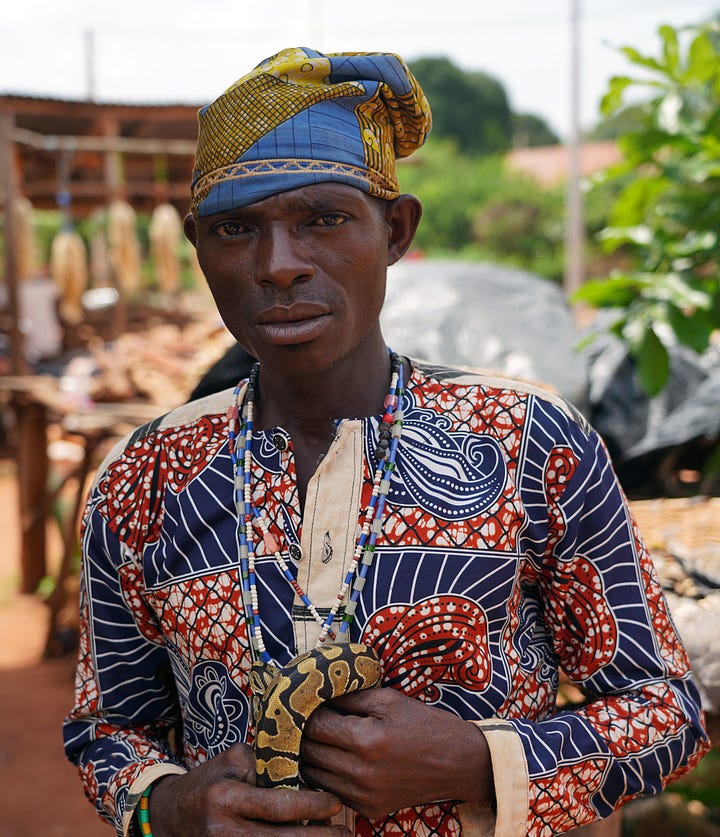
For your itinerary:
Abomey is famous for the royal palaces of the Kingdom of Dahomey4, which are listed as UNESCO World Heritage Sites.
In one of the palaces, you’ll find the Musée Historique d’Abomey. It’s a must-see if you’re in the area.
If you're travelling by public transport: Abomey is next to Bohicon, where the gare routière is located and where you can find shared transport heading south or north through Benin.
If you're heading south in Benin, skip Porto-Novo. It’s quite a disappointment after Abomey and doesn’t have much to offer. Go to Ouidah instead!
Favorite market snacks
At markets, I am excessively interested in food. And snacks. It may happen that I almost carelessly slip something into my mouth (like that chalk), but it can also turn out that I discover a favourite, like the sandwiches in Togo and the eggs in Ghana.
Avocado sandwich in Togo
Because of the French, the bread tastes good in Togo in Benin. Not like the dense stuff they sell in Ghana. Although I think it is a solid base.
The centre of Lomé, the capital of Togo, turns out to be one giant market, and my guesthouse spending is just in the middle of it. I skip the notorious fetish market, having lost the appetite for the smell of dead animals. Instead, I buy my favourite sandwich from a woman balancing a plastic container on her head: a baguette filled with mashed avocado, onion and chillies. Incredibly simple and delicious.
Eggs with chilli peppers in Ghana
My favourite snack in Ghana is a boiled egg with onion and chilli peppers. You can buy them at markets and transport stations. The vendors are easy to recognise: they walk around with a plate of eggs on their heads.
The market in Akosombo is basically a bus stop with a few stalls and small shops. The women selling goods are exuberant and wonderfully assertive. I need water and fancy a boiled egg with chillies. They point me to a bench where I must sit. One woman sorts out bottles of water while another freshly prepares the eggs. All the while, they chat away cheerfully.
In Accra, I walk through the delightfully chaotic Makola Market. And here too, I eat eggs with chilli. The woman selling them finds it rather strange that I’m taking photos of her preparing them.
Watch, read & listen
For a dive into the Kingdom of Dahomey, I can recommend the movie The Woman King and the documentary Dahomey.
Because of the mystery (or just call it the unknown!) surrounding Vodún, visiting markets like the one in Abomey is classified as Dark Tourism. I find this a bit of a thrill-seeking designation and a very Western one. Like many other religions, all rituals and customs have a mystical connotation. But to call it a dark tourism destination is quite a stretch. This article from Bradt Guides covers Vodún well. And despite the use of ‘Dark’ in the title this article from Wanderlust Magazine is interesting too.
Ghana is music! Check this album with Highlife & Blues:
Also, Togo is Music! The Togo All Stars (from Lomé) is a very popular pop orchestra at music festivals. They combine funky voodoo music with highlife and afrobeat. Watch one of their performances:
Because of fast fashion, the volume of secondhand clothing in Ghana has become overwhelming. Read this piece in The Guardian: ‘It’s like a death pit’: how Ghana became fast fashion’s dumping ground
You can find West African Vodún in Benin, Togo, Ghana and Nigeria (check EBSCO). In Benin, it is the national religion since 1996.
Of course, I took photos of the heads and other dead animals, but I didn’t include them in this post.




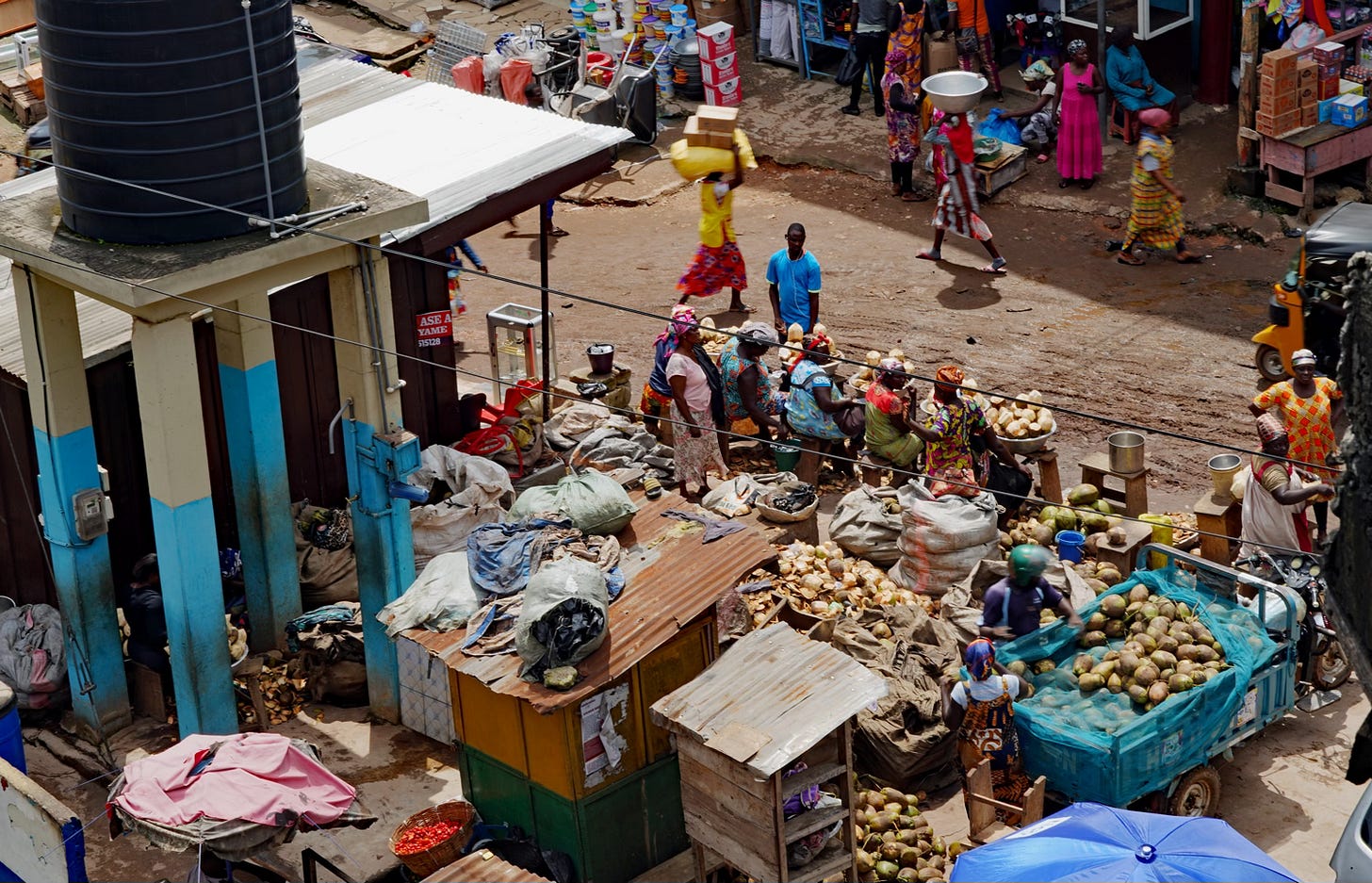

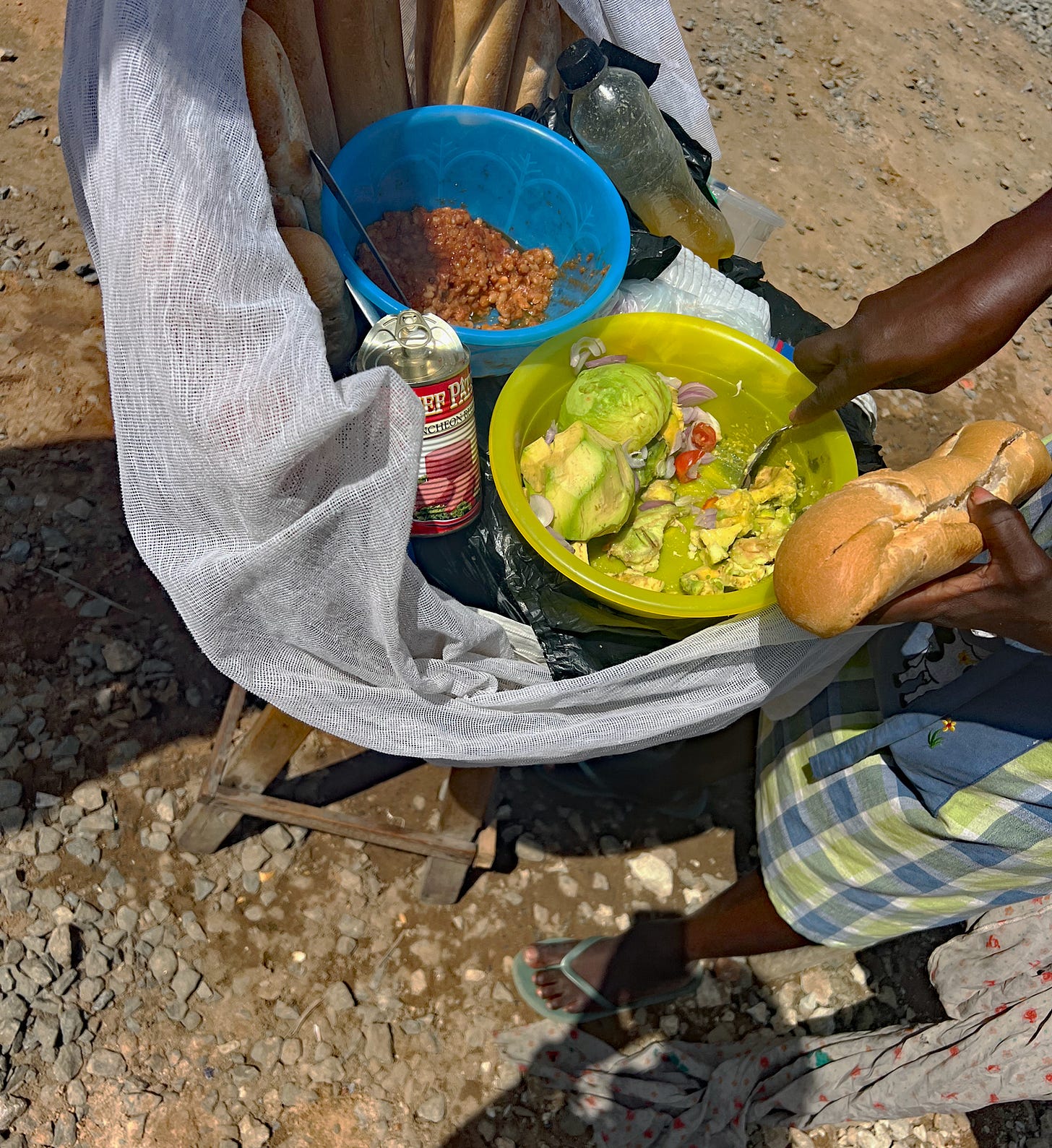
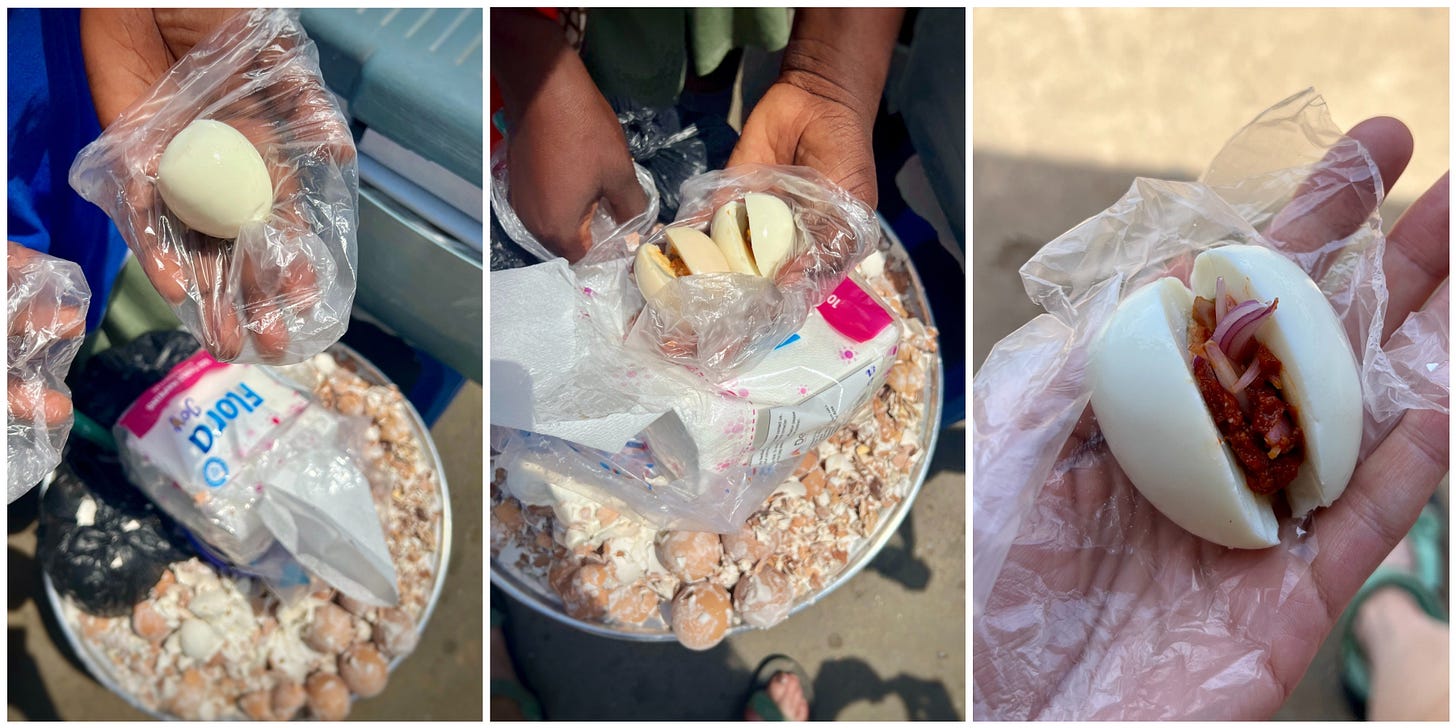
Thanks for the great read! I love markets too